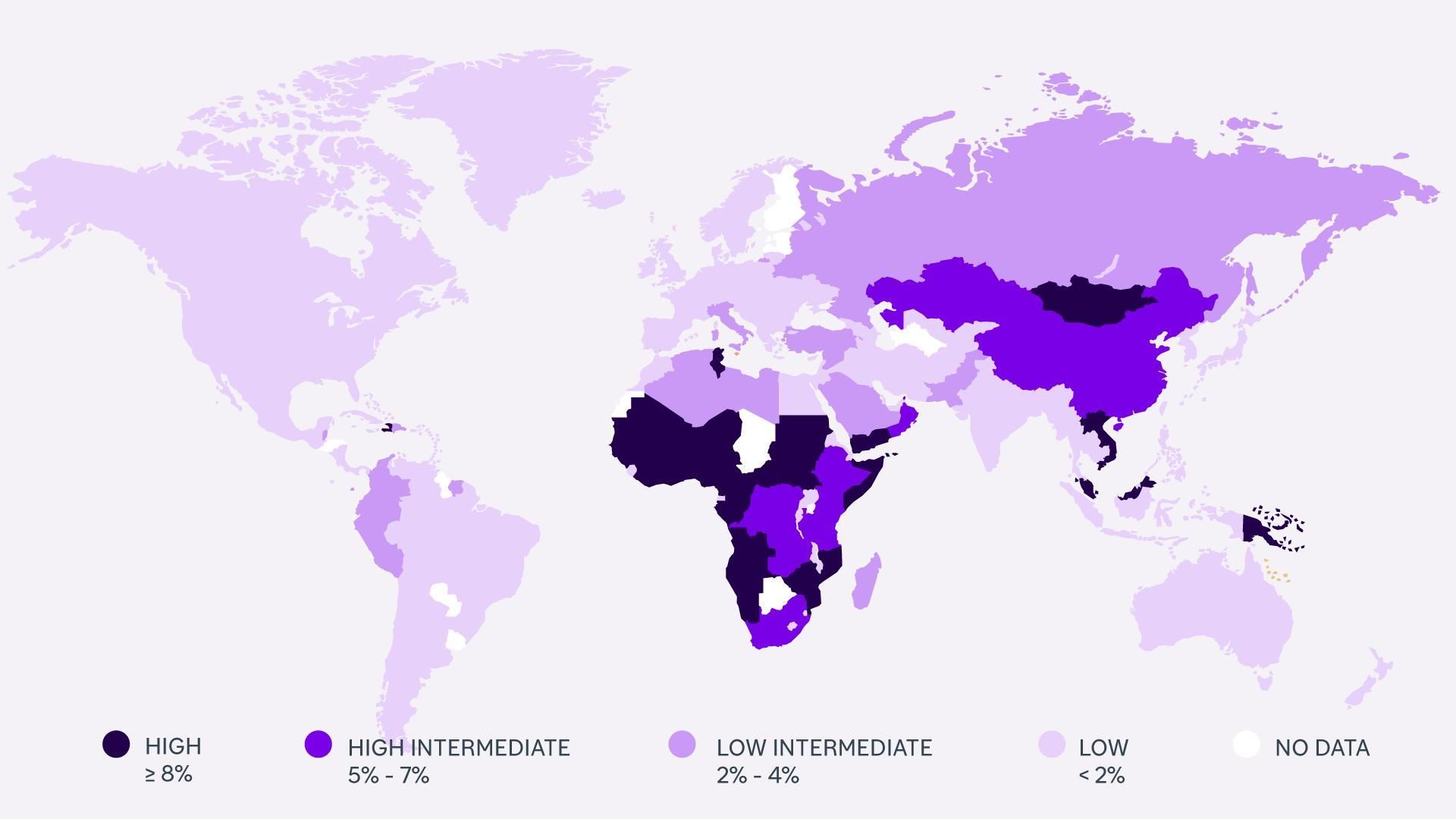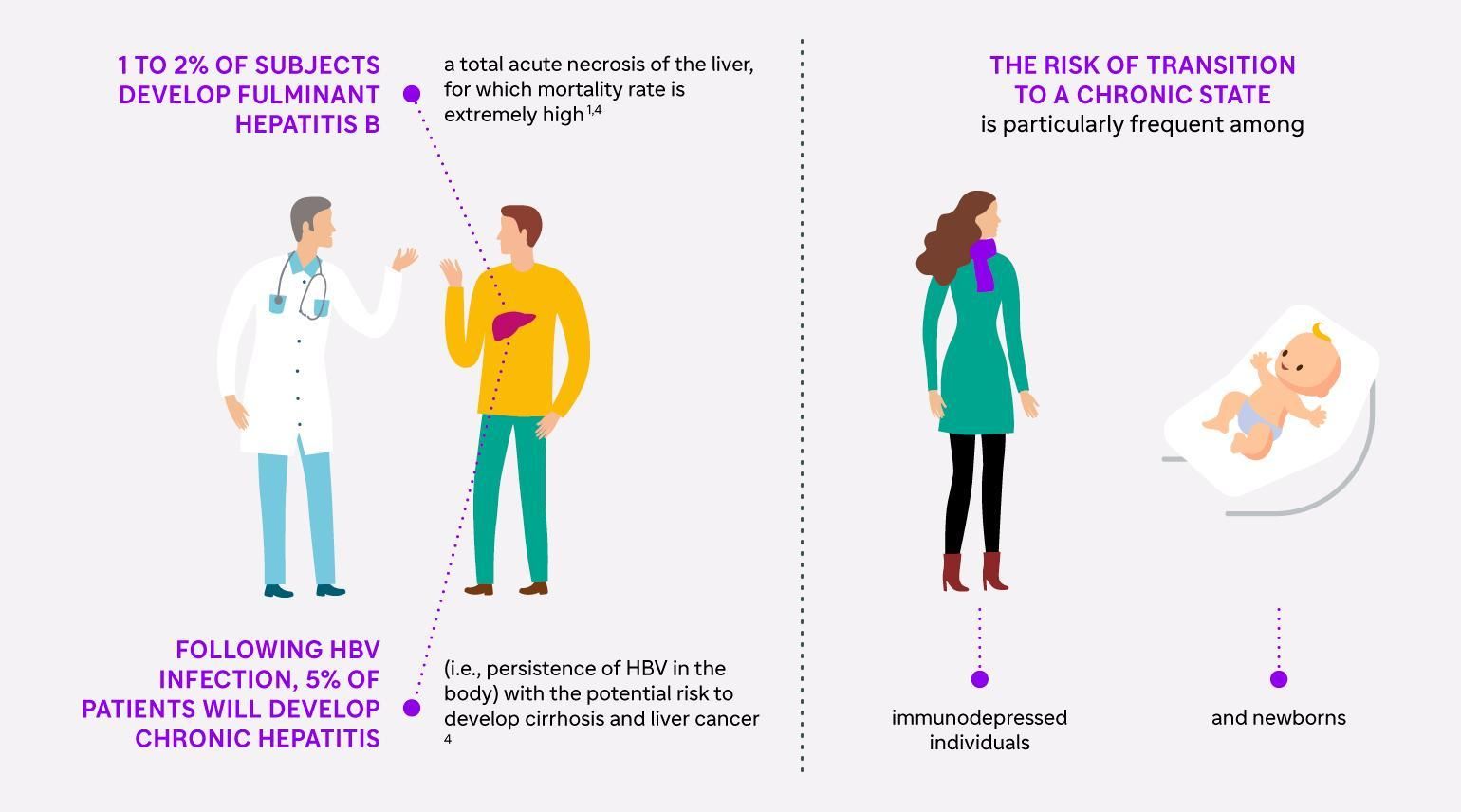Hepatitis B
Hepatitis B is caused by a virus (HBV) which results in an inflammation of the liver. An estimated 257 million people are living with a hepatitis B virus infection (defined as hepatitis B surface antigen positive) 1. In 2015, hepatitis B resulted in 887,000 deaths, mostly from complications (including cirrhosis and hepatocellular carcinoma). Acute hepatitis B is usually associated with a loss of appetite, weakness, nausea, abdominal pain, jaundice, skin rash, and joint pain. The vaccine can help prevent infection and the development of chronic disease and liver cancer due to hepatitis B 2. Today, the most common administration route is with other childhood vaccines in a pentavalent or hexavalent combination.



